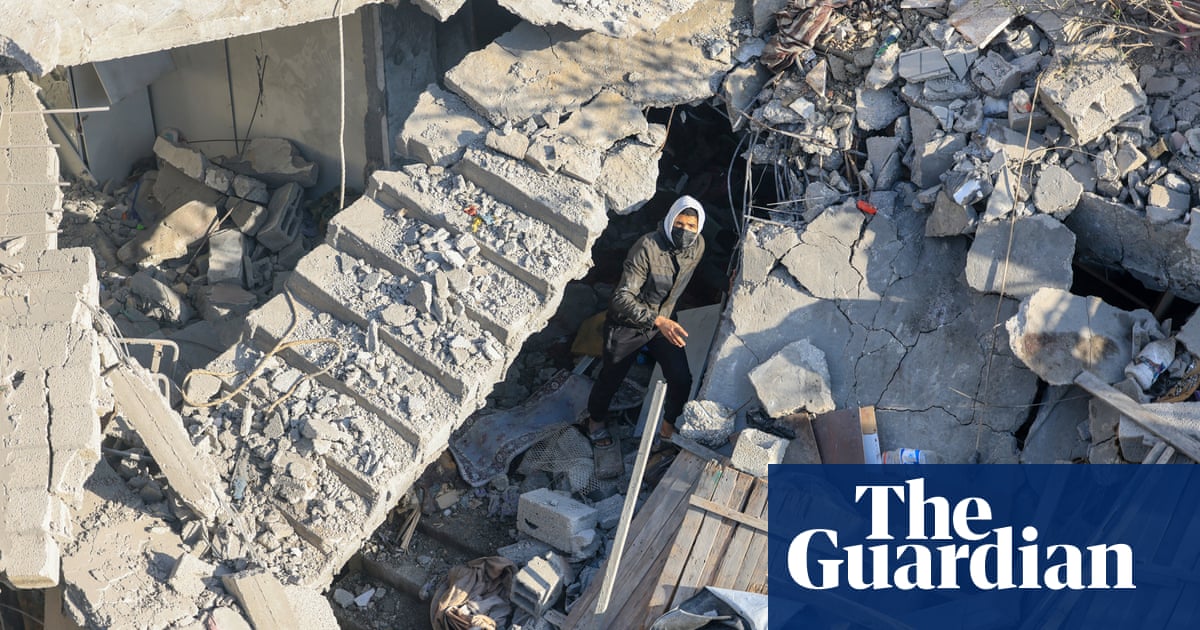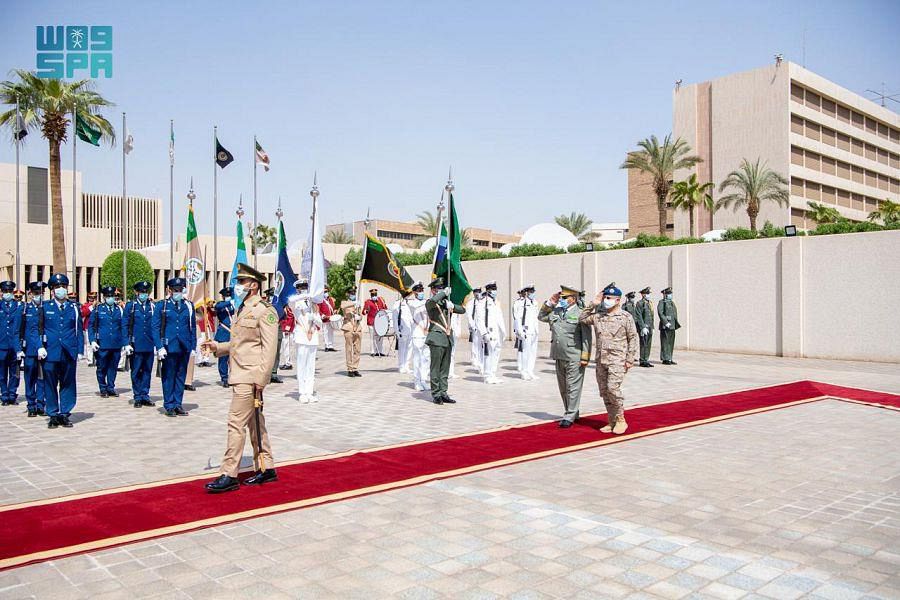
UNITED NATIONS: UN Secretary-General Antonio Guterres on Tuesday opened the world"s largest diplomatic gathering with a stark warning of growing chaos and confusion as the rules-based global order comes under threat of breaking down.
Addressing the opening session of the UN General Assembly, Guterres said trust in the rules-based global order and among states was "at a breaking point" and international cooperation was becoming more difficult.
"Today, world order is increasingly chaotic. Power relations are less clear," Guterres told the 193-nation assembly just minutes before President Donald Trump was to take the podium.
"Universal values are being eroded. Democratic principles are under siege."
Guterres did not single out a country for criticism, but there are fears among UN diplomats that the world is being carved up into spheres of influence and a return to great power rivalry.
Trump"s administration has made clear its distrust of international treaties, having scrapped the Iran nuclear deal, the Paris climate agreement and cut funding to the United Nations.
"Today, with shifts in the balance of power, the risk of confrontation may increase," warned Guterres.
The human rights agenda is losing ground and "authoritarianism is on the rise," he said
Guterres urged world leaders to renew their commitment to a rules-based order, with the United Nations at its center to confront "massive, existential threats to people and planet."
"There is no way forward but collective, common-sense action for the common good," he said.
Drawing a list of global problems, Guterres acknowledged that peace efforts were failing and that respect for international humanitarian norms was unraveling.
"There is outrage at our inability to end the wars in Syria, Yemen and elsewhere", he said.
"The Rohingya people remain exiled, traumatized and in misery, still yearning for safety and justice."
The two-state solution to the Israeli-Palestinian conflict has become "more and more distant" while the nuclear threat "has not eased".
Guterres zeroed in on climate change as an urgent priority, warning that if no concrete action is taken in the next two years to reduce greenhouse gas emissions, the world risks facing runaway climate change.
US PRESIDENT DONALD TRUMP
US President Donald Trump delivered a sharp rebuke of global governing, drawing headshakes and even mocking laughter from fellow world leaders as he promoted his aggressive “America First” agenda and boasted of America’s economic and military might.
Trump arrived late, forcing a last-minute scheduling switch, then received polite applause but also blank stares as he took his blustery brand of policies to the annual General Assembly.
Trump launched a searing attack on Iran, saying its leadership sows “chaos, death and destruction,” criticizing Tehran as a “corrupt dictatorship” that is “plundering the Iranian people to pay for aggression abroad.”
In response, he reiterated the US commitment to a “campaign of economic pressure” to deny Iran funds for its “regional behavior,” and that more sanctions will follow after the resumption of oil sanctions on Nov. 5.
In a speech which focused heavily on the Middle East, Trump praised Saudi Arabia and the UAE for their roles in improving regional security and their efforts in assisting those affected by the ongoing conflicts in Syria and Yemen. He also praised the Saudi Arabian leadership for their bold reforms.
On the Syria conflict, he said the US would respond if chemical weapons are used by the Assad regime in Syria.
He emphasized US support for regional stability with the help of the Gulf Cooperation Council (GCC), Egypt and Jordan and the establishment of a “strategic alliance” in the Middle East.
Speaking in triumphal terms, Trump approached the address as an annual report to the world on his country’s progress since his inauguration. He touted economic figures, declared that the US military is “more powerful than it has ever been before.”
He referenced a long list of UN initiatives, from the International Criminal Court to the Human Rights Council, that his administration is working to undermine.
JORDANIAN KING ABDULLAH II
Jordan’s King Abdullah II pleaded for urgent aid for Palestinian refugees to curb the appeal of radicalism after the United States ended all support.
Addressing the UN General Assembly, the Jordanian leader sought a revival of the Middle East peace process and voiced worries about the financial collapse of UNRWA, the UN agency for Palestinian refugees.
“We need to support full funding of UNRWA and other vital efforts to protect families, keep communities stable and prepare young people for productive lives,” Abdullah aid.
“It would be a terrible mistake to abandon youth to the forces of radicalism and despair. Such support is urgently needed to ensure UNRWA fulfills its role in accord with its UN mandate,” he said.
Abdullah, whose Kingdom is one of only two Arab states with full diplomatic relations with Israel, rejected the idea of a so-called one-state solution in which Palestinians would be absorbed in the Jewish state.
King Abdullah said the proposal had an “ugly, undemocratic reality.”
“There is no such thing as a unilateral agreement; it takes at least two parties to make an agreement,” he said.
“Helping the parties achieve that agreement, and work together to build a new future, deserves the strong, steady support of all our world.”
TURKISH PRESIDENT RECEP TAYYIP ERDOGAN
Turkish President Recep Tayyip Erdogan sharply criticized the use of economic sanctions "as weapons" in his address, in an implicit swipe at the United States.
"None of us can remain silent to the arbitrary cancellation of commercial agreements, the spreading prevalence of protectionism and the use of economic sanctions as weapons," Erdogan told the General Assembly.
Ties between Washington and Ankara hit a low in August when Trump announced steep new tariffs on Turkish steel and aluminum in response to the detention of an American pastor in Turkey.
The Turkish lira has taken a beating on the currency market, sparking fears in Turkey of a full-blown economic crisis.
"Nobody wants the world to experience a new economic rupture," said Erdogan.
He did not accuse the United States directly but pointed to "countries that are persistently trying to create chaos."
"It is very easy to create chaos but it"s difficult to re-establish order, and today some countries are persistently trying to create chaos."
Erdogan urged world leaders to crack down on followers of Fethullah Gulen, a US-based Turkish preacher whom the president has accused of backing a failed coup in 2016 and considers the leader of a terror organization.
Calling once again for his extradition, Erdogan alleged that Gulen was living in Pennsylvania "in a very well-off fashion."
About 130 world leaders are attending this year"s annual session.
FRENCH PRESIDENT EMMANUEL MACRON
King Abdullah’s comments were echoed by French President Emmanuel Macron’s, who took a swipe at US counterpart Trump’s policy on the Palestinian issue.
“What can resolve the crisis between Israel and Palestine? Not unilateral initiatives, nor trampling on the legitimate rights of the Palestinian people to legitimate peace nor underestimating Israel’s fair right to security.”
“There is no credible alternative to the two-state solution living side by side in peace and security with Jerusalem as capital.”
Macron said Paris had unwavering friendship toward Israel, but called on Israel to end policies that undermined the possibility of a peace agreement.
“Continuing this path would be a mistake,” he said.
“There is no such thing as a unilateral agreement; it takes at least two parties to make an agreement. Helping the parties achieve that agreement, and work together to build a new future, deserves the strong, steady support of all our world,” the king said.
Meanwhile, Macron said that Iran should be allowed to keep selling oil and urged dialogue as he rejected a US push to isolate the clerical regime.
Speaking to reporters after addressing the United Nations General Assembly, Macron said that Iranian sales would bring down the price of oil — a professed concern of Trump.
“It would be good for the price of oil for Iran to be able to sell it. It’s good for peace and it’s good for the shape of the international price of oil,” Macron said.
Addressing world leaders shortly after Trump, the French president credited the accord with curbing the nuclear program of Iran.
“What will bring a real solution to the situation in Iran and what has already stabilized it? The law of the strongest? Pressure from only one side? No!” Macron said in his address.
“We know that Iran was on a nuclear military path but what stopped it? The 2015 Vienna accord.”
But Macron said: “We should not aggravate regional tensions but rather through dialogue and multilateralism pursue a broader agenda that allows us to address all the concerns caused by Iranian policies — nuclear, ballistic, regional.”










